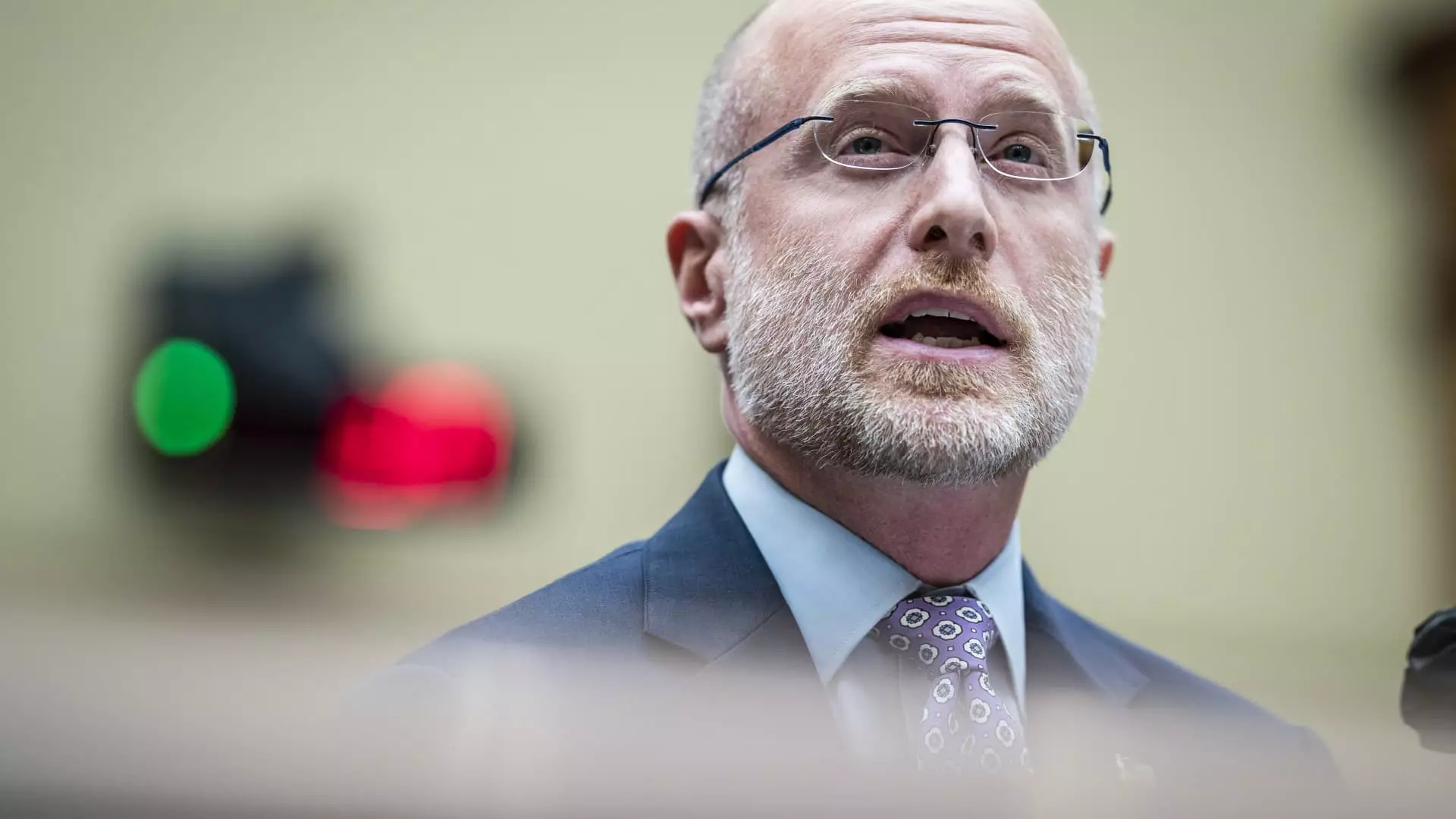As President-elect Donald Trump prepares to take office, the appointment of Brendan Carr as chairman of the Federal Communications Commission (FCC) signals a transformative era for telecommunications regulation in the United States. At 45, Carr is not only a seasoned member of the FCC but also a staunch advocate for deregulation and a vocal critic of the current administration’s policies concerning broadband and Big Tech. With a history steeped in contentious debates over telecommunications policy, Carr’s leadership may reshape the landscape of media regulation and digital discourse.
Carr’s criticisms of President Biden’s administration are multifaceted and robust. He has openly opposed significant decisions such as the refusal to disburse approximately $900 million in broadband subsidies earmarked for SpaceX’s Starlink initiative. Furthermore, Carr has condemned the Commerce Department’s $42 billion broadband infrastructure program as inadequate, placing him at odds with efforts to broaden internet access in underserved communities. His firm stance on spectrum policy illustrates a willingness to directly challenge Biden administration strategies, potentially igniting further divisions in an already polarized political environment.
In a bold move, Carr recently engaged major tech companies, including Meta, Google, Apple, and Microsoft, accusing them of censorship and infringing upon the free speech rights of American citizens. His declaration that the FCC must prioritize restoring these rights underscores a commitment to defending individual liberties against perceived corporate overreach.
Carr’s appointment could also catalyze a broader political and regulatory transformation within the broadcasting landscape. Trump’s historical contempt for established media entities has seen him threaten the licenses of major networks such as ABC, NBC, and CBS for perceived bias. Such intentions evoke memories of previous calls to revoke broadcast licenses, which were staunchly opposed by former FCC Chair Ajit Pai due to legal constraints. As Carr ascends to the role of chairman, his alignment with Trump’s aggressive stance against media censorship hints at potential conflicts between the FCC and major broadcasting entities.
This scrutiny extends beyond regulatory matters, as Carr has expressed dissatisfaction with how networks have showcased political figures like Vice President Kamala Harris. His criticism of NBC for featuring Harris on “Saturday Night Live” prior to elections elucidates a desire for stricter oversight of media portrayals that may influence public opinion.
Moreover, Carr’s international engagements, such as being the first FCC commissioner to visit Taiwan, highlight his commitment to confronting foreign telecommunications threats, particularly from China. His advocacy for a hardline policy on Chinese telecom companies reflects a growing trend of prioritizing national security amidst global interdependencies. As America navigates a rapidly evolving digital world, Carr’s chairmanship is poised to foster a more aggressive approach toward international telecom regulation.
The incoming administration’s challenge will be to reconcile its deregulatory ambitions with the complexities of an ever-expanding digital economy and the pressing demand for universal internet access. Carr’s appointment could catalyze significant shifts in both domestic and international telecommunications policy, placing him at the center of this ongoing discourse.
Brendan Carr’s appointment as FCC chairman under Trump’s administration presents a paradigm shift for telecommunications regulation. His unwavering support for deregulation, strong opposition to perceived overreach from Big Tech, and a contentious relationship with major media networks suggest a potential for transformative changes. As the country braces for these developments, the broader implications of Carr’s leadership will reverberate throughout the telecommunications landscape, raising critical questions about free speech, media integrity, and access to technology in a rapidly changing world.



Leave a Reply